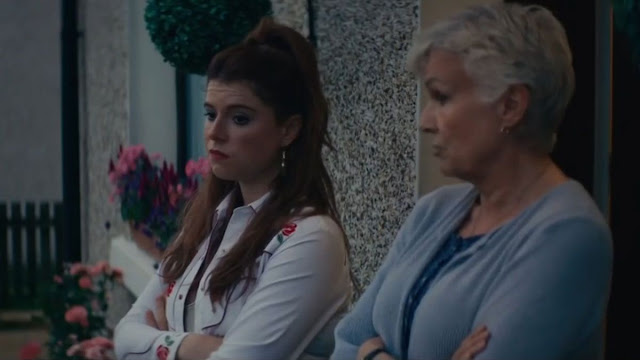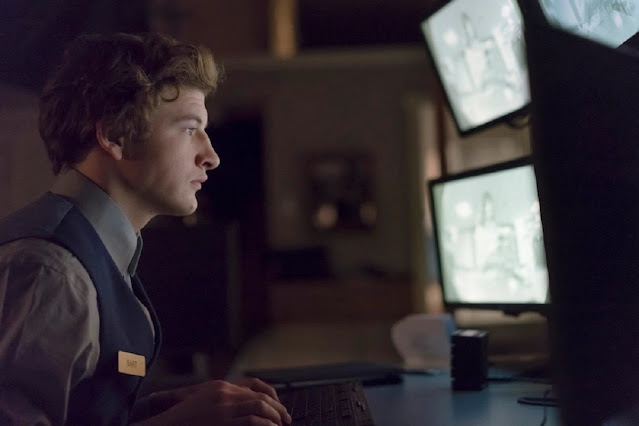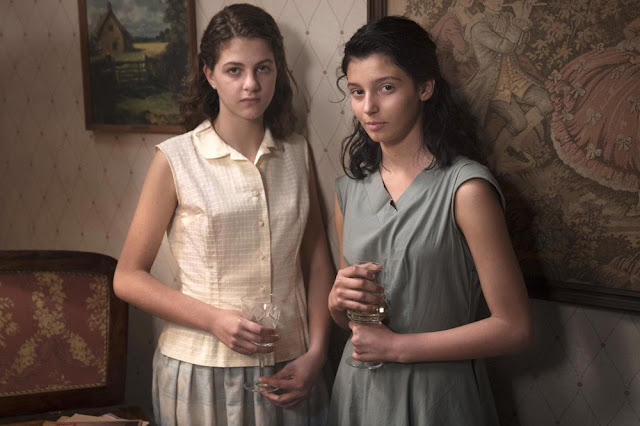Wild Rose: sigue tu propia canción
Español / English)
Conmovedora película sobre una joven madre soltera de clase trabajadora de Glasgow que desea realizarse como cantante de música country, con brillantes actuaciones de Jessie Buckley (quien canta extraordinariamente bien y transmite en forma admirable la rebeldía, el dolor y las ilusiones de su personaje) y Julie Walters como su pragmática madre.
Afortunadamente, el filme mantiene una coherencia fiel a la tradición del realismo social del cine británico.
El conflicto entre asumir las responsabilidades como madre y llevar adelante su vocación artística, en el marco del enfrentamiento con su propia madre trabajadora (madre sustituta de sus hijos) está notablemente desarrollado y descripto de una manera conmovedora ¿qué sería lo justo para ella? ¿cuál será “su propia canción”?
Hay en esta película de Tom Harper elementos del cine social de Ken Loach y Mike Leigh, pero nunca explícitos: son las situaciones las que hablan por sí mismas. También posee algo de cuento de hadas, con madrina incluida. Pero la película se aparta claramente del camino que habría tomado de tratarse de una película yanqui y mantiene su coherencia ideológica. El filme tiene varios puntos de contacto en su tono con la anterior biopic Gilda: no me arrepiento de este amor de Lorena Muñoz.
Jessie Buckley (la protagonista de Pienso en el final / I’m thinking of ending things) posee un carisma arrasador y canta extraordinariamente bien, transmitiendo en forma admirable la rebeldía, el dolor y las ilusiones de su personaje. (su vocación por la música country no es una anomalía, ya que el género es muy popular en Escocia). Julie Walters, por su parte, hace una composición extraordinaria de su sufrida, digna y pragmática madre.
The vocation in the face of social reality
Heartwarming film about a young
working-class single mother from Glasgow who wishes to fulfill herself as a
country music singer, with brilliant performances by Jessie Buckley (who sings
extraordinarily well and admirably conveys her character's rebellion, pain and
illusions) and Julie Walters as her pragmatic mother.
Fortunately, the film remains
faithful to the tradition of social realism in British cinema.
Review:
Rose-Lynn Harlan (Jessie
Buckley), after spending a year in prison, returns to her house in the suburbs
of Glasgow, with an anklet, to be reunited with her mother Marion (Julie Walters)
and hers two children small of her. Rose sings country music and her dream is
to go to Nashville to start a singing career.
Rose, a working middle class, had to assume being a single mother from a young age and exercising her vocation in a country music bar, but she is not willing to give up on her projects. Her life passed over her without giving her time to mature, or demanding it prematurely, as happens to the poor. Where will the process of maturation and realization go through? How to reconcile them with an impulsive personality and at some point egocentric?
The conflict between assuming the responsibilities of her motherhood and carrying out her artistic vocation, within the framework of the confrontation with her own working mother (surrogate mother of her children) is remarkably developed and described in a moving way. would it be fair for her? What will "his own song of hers" be?
There are in this Tom Harper film elements of the social cinema of Ken Loach and Mike Leigh, but never explicit: it is the situations that speak for themselves. It also has something of a fairy tale, with a godmother included. But the film clearly deviates from the path it would have taken if it were a Yankee film and maintains its ideological coherence.
Jessie Buckley (the protagonist
of I'm thinking of ending things) has an overwhelming charisma and sings
extraordinarily well, admirably conveying the rebellion, pain and illusions of
her character. (Her calling for country music is not an anomaly, as the genre
is very popular in Scotland.) Julie Walters, for her part, makes an
extraordinary composition of her long-suffering and pragmatic mother.








Comentarios
Publicar un comentario
Mensajes sujetos a moderación